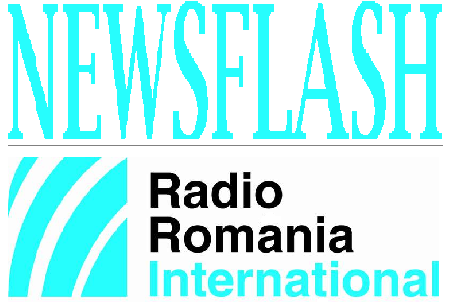May 13, 2014 UPDATE
Click here for a roundup of domestic and international news

România Internațional, 13.05.2014, 20:32
Romanian president Traian on Tuesday said that neighboring Ukraine runs the high risk of being federalized. The Romanian official pleaded for negotiations between the government in Kiev and representatives of the Russian minority in the east and south of the country. In turn Romanian Prime Minister Victor Ponta said upon talks with the president that the Romanian officials have a coordinated position concerning the situation in neighboring Ukraine and the Republic of Moldova, as well as regarding the strategic partnership with the United States. Also on Tuesday, Ukraine’s ambassador in Bucharest Teophil Bauer said his country isn’t facing a civil war but a foreign aggression.Russia said on Tuesday that the new EU sanctions against it would affect the peace efforts in Ukraine and called on the West to persuade Kiev to hold talks on the country’s new structure before the early presidential election of May 25th.In another development at least six Ukrainian soldiers have been killed and eight wounded in an ambush by the separatists close to the city of Kramatorsk.
Romanian Foreign Minister Titus Corlatean on Tuesday paid a visit to Luxembourg at the invitation of his counterpart from that country Jean Asselborn. High on the Romanian Foreign Minister’s agenda was the potential of developing the economic relations between the two countries given that Luxembourg is the ninth foreign investor in Romania. The two officials also tackled a series of European issues such as prospects of overcoming the economic and financial crisis, the free movement of people and labour force, Romania’s accession to the Schengen zone and the upcoming EU Parliament election.
The ex-soviet Republic of Moldova, a country with a Romanian-speaking majority is to sign its Association Agreement with the European Union, which also includes a free-trade accord on June 27th, the European Council president Herman van Rompuy announced in Chisinau on Tuesday. Concerning Russia’s policy, Rompuy said that the EU is ready to help the Republic of Moldova in order to cope with pressures coming from abroad. Van Rompuy held talks in Chisinau with representatives of the pro-Western administration, such as president Nicolae Timofti, Prime Minister Iurie Leanca and the speaker of Parliament Igor Corman. The Republic of Moldova ratified the Association Agreement last year in November at the Eastern Partnership Summit in Vilnius. Pundits in Chisinau believe that Russia would exert more pressure these days in order to prevent Moldova’s signing the Association Agreement with the EU.
Employees of the Romanian Post Corporation went on work-to-rule on Tuesday, to protest work conditions and the way in which the company is being managed. Trade union leaders also say they want a 20% pay raise. Post office staff will not walk out, but will wear white armbands at work. This is part of a series of protests launched last week. The privatisation of the Romanian Post Corporation failed last year, and the management says personnel downsizing was necessary. In late March, the company had debts of around 45 million euros.
The centre-right National Liberal Party, in opposition, tabled a motion of censure in Parliament on Tuesday against the left-of-centre government headed by the Social Democrat Victor Ponta. The text was also signed by MPs from the Liberal Democratic Party, People’s Movement and the Party of the People, all in opposition. The authors claim the current Government is pushing Romania into what they call “the dark and corrupt” period of 2001-2004, or even the times before 1989, when the Communist Party had the entire country in its grip. The signatories accuse Prime Minister Ponta of corruption, hypocrisy, of undermining the judiciary and of using budget resources for election purposes.
70% of Romanians are optimistic or very optimistic as regards the future of the EU, according to a recent Eurobarometer report. The report indicates that only Poland and Malta have such high confidence rates, whereas Italy and Greece are at the opposite pole, with 41% and 37% respectively. On the other hand, almost half of the Europeans believe the peak of the impact of the economic crisis on jobs is over. In fact, in 20 member states, most citizens say they expect the economic situation in their home countries to improve in the coming year.




























